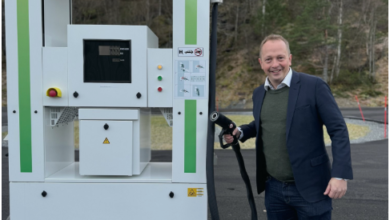Ballard, Forsee Power to develop integrated solutions for hydrogen mobility
The partnership will accelerate the scaled adoption of hydrogen FCEVs in heavy-duty mobility applications.

Ballard Power Systems (a leading producer of PEM fuel cells) and Forsee Power (smart battery systems for sustainable electromobility company) have partnered to develop fully integrated fuel cell and battery solutions for heavy-duty hydrogen mobility applications.
Under the MoU, both are partnered for a long-term collaboration involving the co-design, co-development, production, marketing, and sales of integrated fuel cell battery solutions. The fully integrated solution would be optimised to meet the needs of targeted medium and heavy-duty mobility markets of bus, truck, rail, marine, and off-road. The partnership is expected to increase technological performance, optimise costs, extend service life, and provide pre-integrated and optimised electric powertrain solutions.
Ballard will supply the fuel cell system and related controls for the planned integrated solution, and Forsee Power will supply the battery system and related battery management system, cooling system, and high voltage DC/DC conversion system. The parties will jointly develop the Energy Management System (EMS) to optimise the hybrid fuel cell and battery system architecture.
Ballard is also committed as a lead investor (~ €40 million) in connection with the proposed IPO of Forsee, allowing Ballard to acquire a stake in Forsee Power upon its IPO on Euronext in Paris, France, and the right to appoint a board member in Forsee.
Randy MacEwen, Ballard’s President and EO, said, “Today, OEM customers typically procure the various pieces of the fuel cell and battery powertrain separately, and then need to integrate them together. By offering pre-designed and fully optimised and integrated fuel cell-battery solutions to our customers, we expect to ease implementation friction points.”
Christophe Gurtner, Chairman & CEO of Forsee Power, commented, “This partnership is expected to provide key strategic advantages: technological know-how, industrial capacities, and geographical coverage to capture the growth of the hydrogen vehicle market.”
